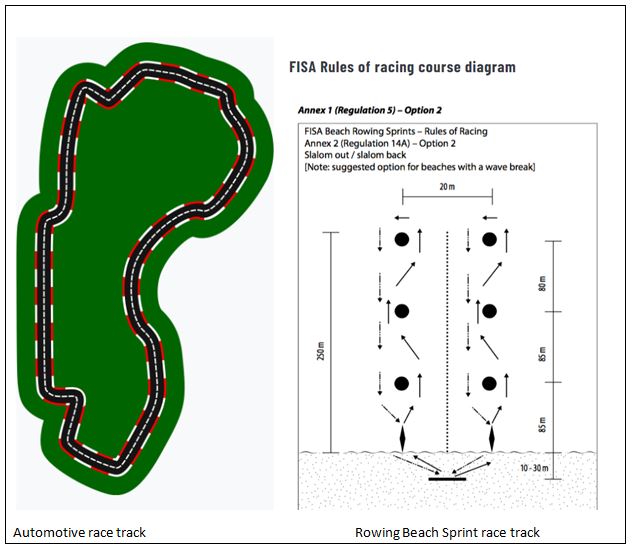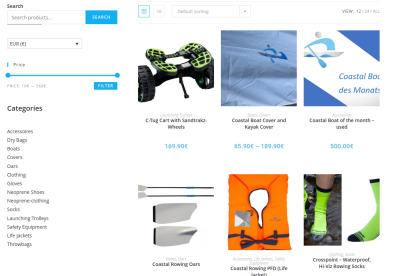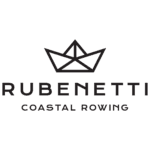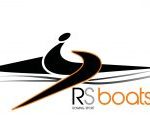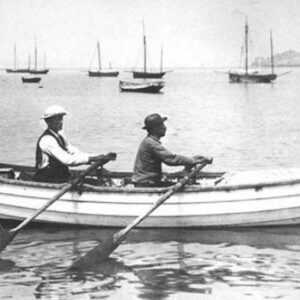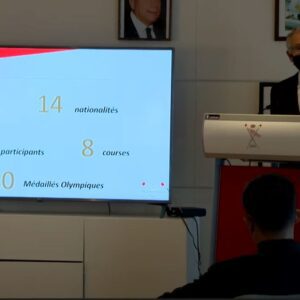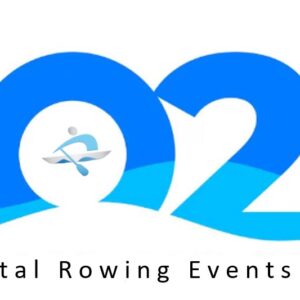We have reported this already some time ago on our website Rowperfect and have edited some important parts. Racing in Coastal Rowing and the Formula F1 Racing have a lot in common. Both start their racing season in spring and end with the championship in fall. Have you been watching the F1 races? Around the world every two weeks the racing team compete in different countries. Our sports is a little more “local”. Nevertheless we have many Beach Sprints and Endurance races in Europe and the USA every weekend. Planning Coastal Rowing is like Formula F1 Racing. Winning looks easy. But the reality is very different. Coaches, Clubs and Teams must consider many things…
Planning Coastal Rowing success: Winning is a knife-edge situation
In order to win a highly competitive race, whether a beach sprint, an endurance race or a F1 course, any team has to produce the best performance across a number of factors. Any one of these has the capability to de-rail a best performance to a lower grade and lose the race for the individual and the crew.
The results from the last WRCC in Portugal, the ERCC, even races on flatwater like Head Races in Boston (HOCR) and London (HOR Fours) show, how closely fought top racing is and the anecdotal ‘tales’ after the race from participants show that most athletes understand what contributed to their win or loss.
Understand why you win or lose
We have found an interesting paper in our archives. Take a look at the paper “An 8 factor model for evaluating crew race performance” by Cornett, McCauley and Cummings on the High Performance Rowing Website. It focuses on flat water rowing (2000m) but is still applicable to Coastal Rowing.
The formula they posit is algebra: but the explanations give insight into the factors that coaches and athletes need to comprehend, improve and seek to influence when preparing to race
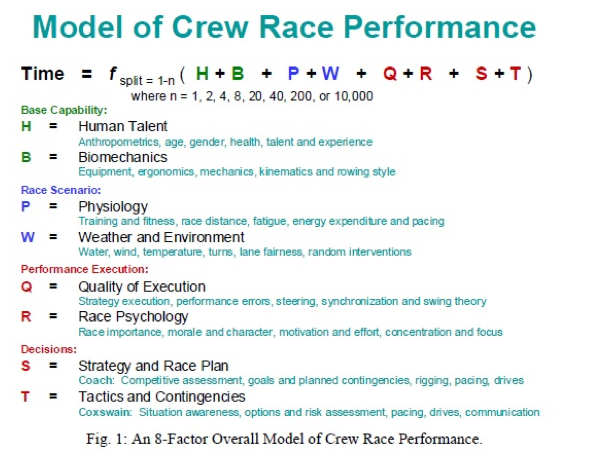
An 8 factor model for crew race performance
Understand what you can influence
As a coastal coach or an ambitious coastal rowing athlete, there are some factors you can affect and influence and others that you have to accept and work with; some are short-term and others will take a season or more to change. Let’s consider the full list within the formula.
- Base Capability defines the raw talent of a crew and their capabilities in using their equipment. It includes the two factors for Human Talent (H) and Biomechanics (B). Raw Talent is god-given but can be improved but capabilities using the boat, oars, Force Curve Application and stroke rate data are learned.
- Race Scenario defines the circumstances a crew faces on race day. It includes the two factors for the crew’s Physiology (P) and the Weather and Environment (W) on this particular day. How well-prepared – peaking – your body is on race day can be trained but the weather is not under your control. How do you cope with the weather? However this is a skill that can be trained and learned. There are plenty of weather apps around wich gives information about water, wind and waves.
- Performance Execution is how well a crew actually performs relative to its base capability and the race scenario. It includes factors for the Quality of Execution (Q) and the effects of Race Psychology (R). Of starts, boat handler positions, getting out of the first swell, turn, pushes, overtaking – can be practiced and improved.
- Decisions made before and during a race also affect the race outcome. These include the coach’s pre – race strategy and race plan. Lane selection, relaxation techniques, and coxing might be crucial. The race plan should include the coxswain’s actual within-race application of tactics and contingencies (T). This area is where experience counts for a lot. The coxswain is one of the most important crew members as what S/He does at critical decision points has a disproportionate effect on the race outcome. However, coxwain in a Co4x or athletes in a solo or double, is a skill that can be learned.
So next time when you are planning coastal rowing races, watch a Formula 1 come on the TV – Watch a few laps and observe the Pit Lane Crew, the trackside team as well as the car drivers and see what observation could be applied to your own coastal race. See how each fits into the overall race performance.
- Your Crew, Coach and Club: Together create the environment that delivers race results.

